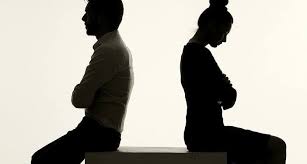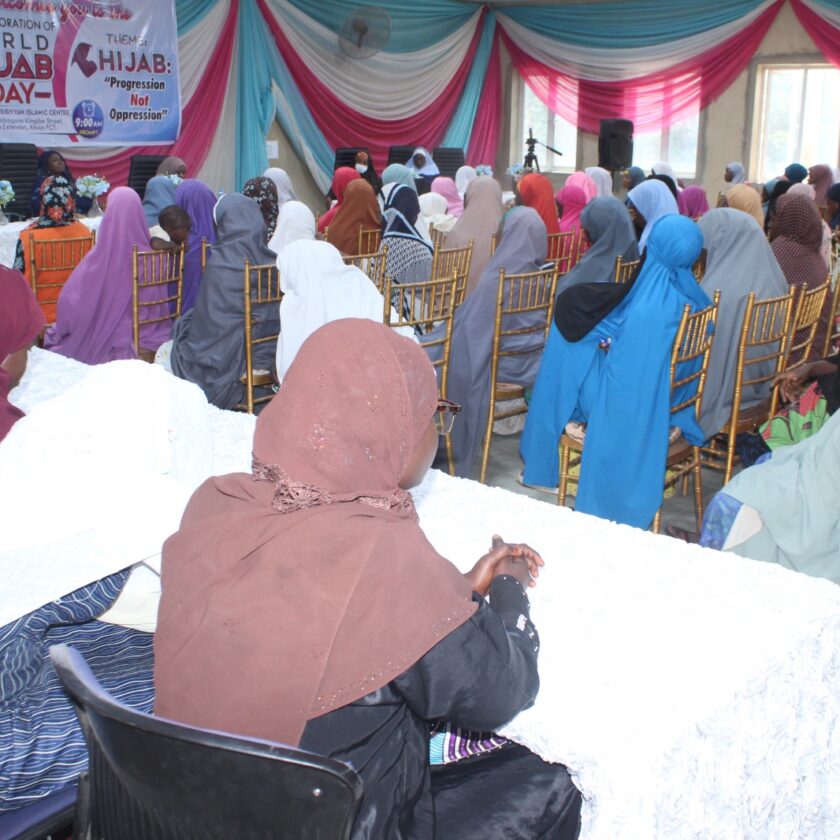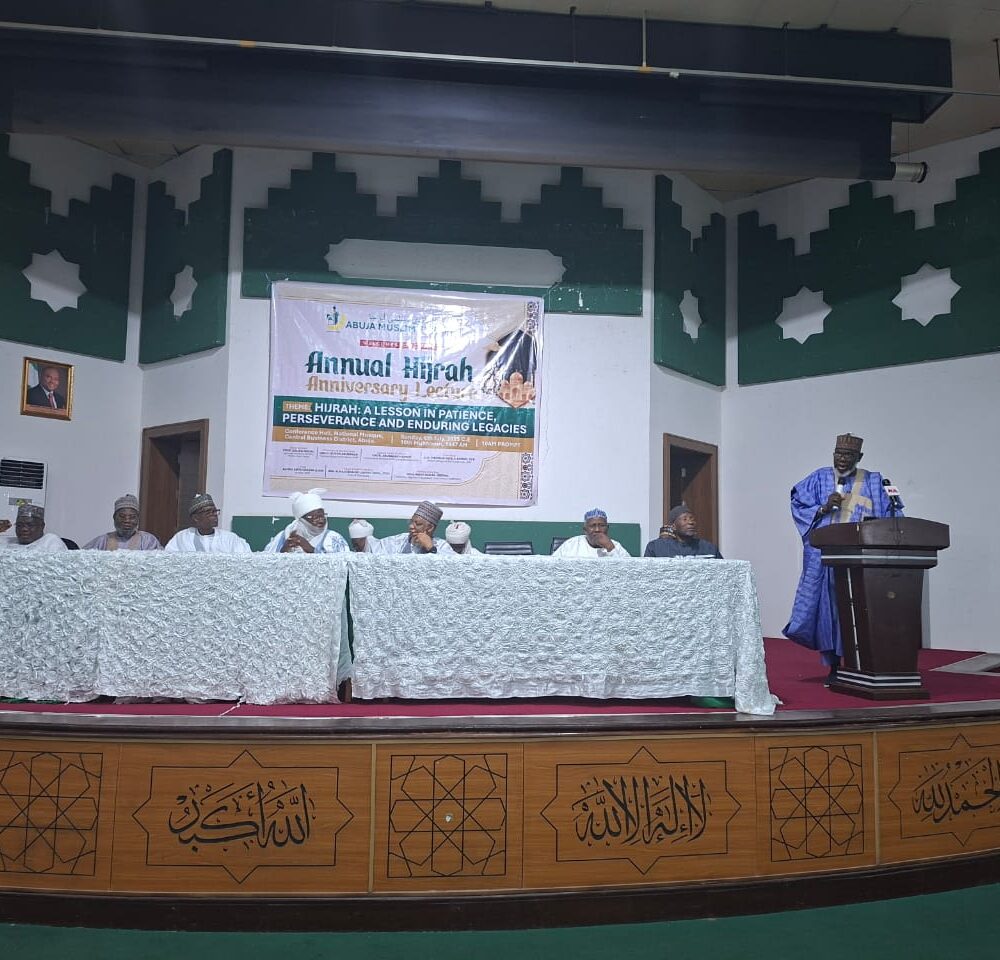In The Name of Allah, The Most Merciful, The Bestower of Mercy
All praise is due to Allah, the Lord of all creation—may He extol the Messenger in the highest company of Angels and send His peace and blessings upon him—likewise upon his family, Companions, and true followers.
Their number is not known with certainty. Perhaps they were only two. Maybe they were twenty. Regardless, these women approached the man who had thus far, given them hope for this world and beyond. This time, it was to seek a solution to behaviour that seemed so inimical to the values he taught:
“Women are individually responsible for their words and deeds and accountable to Allah. Like men.” [Qur’an, 9:71]
“Allah recognises and rewards the good works of every human being, male or female.” [Qur’an, 3:195]
“Marriage is a partnership based on love and mercy.” [Qur’an, 30:21]
Perhaps this is why these women approached the Prophet Muhammad (Peace be upon him), that day with a question that remains a problem in marriages over a thousand years later: Domestic Violence or Domestic Abuse.
On hearing of this abuse, the Prophet called the community to the Mosque for a meeting. Whenever there was something he felt all Muslims needed to know about or discuss, he would have Bilal Ibn Rabah, may Allah be pleased with him, give the call to prayer, even if it was not time for it. Then, when people came to the Mosque, he would lead them in prayer. This would be followed by a special sermon about a topic of concern or discussion about a particular situation.
This time when he called the Muslims, it was to order an end to domestic violence.
The Prophet mentioned to the gathering that several women had visited his family complaining about their husbands beating them. According to one report, he mentioned that 70 women had approached his family. He criticised these husbands, saying this behaviour was unacceptable from those who seek to live by Islam’s ideals. This community meeting is reported by two of the best Hadith collections of the Prophet, Abu Dawud and Ibn Majah.
The Prophet’s reprobation was not something Muslim men took lightly at the time, since Allah has described him as a “beautiful example” (Qur’an, 33:21) whom it is obligatory to follow. As well, the Prophet’s own wife confirmed that he never hit anyone with his hand, neither a woman nor a servant (Sahih Muslim). In addition, he once said:
“The best among you is the one who treats his family the best, and I am the one who treats his family the best.”
The Prophet fought domestic violence, a scourge common to many civilisations at the time. He did this by affirming the inherent dignity of women as human beings responsible and accountable before Allah. He also did it by directly addressing a hitherto “private” matter between a husband and wife. Domestic violence was not a “women’s issue” irrelevant to Muslim men. The Prophet understood that this abusive behaviour could be changed, but it first had to be brought out into the open and addressed head on. The personal was definitely political.
He also understood that ending domestic violence meant helping perpetrators clearly see the utter injustice of physically abusing their wives. The Prophet (Peace be upon him) once asked:
“How does any one of you beat his wife as he beats the stallion camel and then sleeps with her at night?” [Bukhari]
How could a relationship that Allah says is based on love and mercy be characterised by the kind of vicious abuse often meted out to animals, which the Prophet also condemned?
The change in perception made a definite difference. So much so that the men began complaining of their wives’ newfound assertiveness.
The Prophet’s methodology to end the abuse of women. The Prophet (Peace be upon him) took several measures to end the abuse of women as follows:
1. He fought abusive behaviour in word and deed: The Prophet used his sermons repeatedly to order men to stop abusive behaviour towards women. He once called an emergency community meeting to address the issue of men beating their wives, as described above. He Prophet (Peace be upon him) forbade women’s sexual exploitation and harassment, as well as the stalking of women. Women could seek justice and divorce against abusive husbands. He instituted punishment by law for those who falsely accuse women. He prohibited men from stopping their spouses from attending the Mosque.
2. He empowered women: The Qur’an declared that women have rights similar to men. He established women’s right to inheritance while declaring that they were not obligated to use their personal wealth to assist husbands in covering household expenses. Qur’an ordered that women be consulted in family and community affairs. He instituted educational programs for women. Many women became teachers in his lifetime.
3. Marriage reform: The Prophet banned several abusive forms of marriage in pre-Islamic Arabia. He prohibited temporary marriage. He forbade the pre-Islamic practice of men having an unlimited number of wives. The number was drastically reduced to four, with the condition that polygamy could only be practiced if a man could guarantee equality in treatment of wives. Otherwise a man could marry only one wife. He established that a marriage without the consent of the bride is invalid.
4. Preaching good behaviour: The Prophet elevated the status of motherhood by declaring that Paradise is under the feet of mothers, and that to serve them merits three times more reward than serving fathers. He declared that a person who does not prefer his sons over his daughters would be with him in Paradise. His last sermon to the community reminded men to fear Allah by being just towards women.
What Islamic leaders and Imams can do today:
Imams, Muslim leaders, Muslim community and all the stakeholders as a whole can take some of the key steps the Prophet took to end domestic violence today. Most notable among these are:
• Acknowledging the existence of the problem when an abused Muslim woman brings it forward.
• Ending the silence on the issue by discussing it in regular Khutbas (sermons) and knowledge Halaqas.
• Calling a special emergency community meeting about it as the Prophet (Peace be upon him) did.
• Making sure that women have full access to Imams and Mosques services.
• Making the faith connection. Establishing that a man who beats his wife is violating Islam and the Sunnah of the Prophet (Peace be upon him).
These steps are a start. They are not the only cure but if implemented, they can lead to a significant shift in the way the society as a whole deals with domestic violence today. They can help end the crisis that continues to engulf us, destroying countless women, children and men, passing abuse on to the next generation of Muslims and ultimately, distancing more Muslims from Islam.
Domestic abuse or domestic violence is any kind of violence or other abuse between family members. This can be violent behaviour by a husband, wife, father, mother, son or daughter who lives with you or lives elsewhere.
It may include physical, sexual, emotional or financial abuse. It can also affect the health and well being of children in the family.
Domestic violence is any incident or pattern of incidents of controlling, coercive or threatening behaviour, violence or abuse between those aged 16 or over who are or have been intimate partners or family members regardless of gender or sexuality. This can cover, but is not limited to:
• Physical Abuse
• Psychological Abuse
• Sexual Abuse
• Emotional Abuse
Controlling behaviour: Controlling behaviour is a range of acts designed to make a person subordinate and/or dependent by isolating them from sources of support, exploiting their resources and capacities for personal gain, depriving them of the means needed for independence, resistance and escape and regulating their everyday behaviour.
Coercive behaviour: Coercive behaviour is an act or a pattern of acts of assault, threats, humiliation and intimidation or other abuse that is used to harm, punish, or frighten their victim.
This definition, which is the police definition, includes so-called honour-based violence, female genital mutilation (FGM) and forced marriage, and is clear that victims are not confined to one gender or ethnic group.
No one should have to put up with any kind of violence or abuse. Everyone has the right to personal safety – so if you are worried, then ask for help. If it has happened once, it is likely to happen again. Even if it has been happening for years, it is never too late to seek help.
Lastly, I urge all of you to remember the whole Ummah in your precious Du’as, especially in this blessed month and in the last 10 days of Ramadan.
Allah surely knows best and he is the Lords of the universe and May his peace and blessing be on his Messenger, his family, his companions and those who follow them.
I ask Allah, the Most High to grant us success and enable us to be correct in what we say and write, ameen.
Murtadha Muhammad Gusau is the Chief Imam of Nagazi-Uvete Jumu’ah and the late Alhaji Abdur-Rahman Okene’s Mosques, Okene, Kogi State, Nigeria. He can be reached via: [email protected] or +2348038289761.





